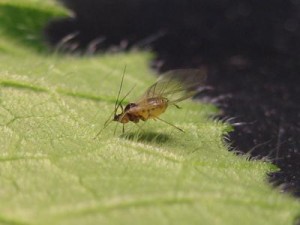 Hosts: Vincent Racaniello, Dickson Despommier, and Alan Dove
Hosts: Vincent Racaniello, Dickson Despommier, and Alan Dove
Vincent, Dickson, and Alan consider a broad spectrum antiviral against enveloped viruses, how a plant virus induces chemical signals in the host to maximize its spread, a new way to preserve viral vaccines at tropical temperatures, and the continuing story of XMRV and chronic fatigue syndrome.
This episode is sponsored by Data Robotics Inc.
Click the arrow above to play, or right-click to download TWiV #70 (56 MB .mp3, 77 minutes)
Subscribe (free): iTunes, RSS, email
Links for this episode:
- Broad spectrum antiviral against enveloped viruses
- Chemical signals induced by a plant virus attract insect vectors to inferior hosts
- New vaccine technology to make viral vaccines stable at tropical temperatures
- Second UK study fails to find XMRV in chronic fatigue syndrome patients (pdf)
- Nature podcast with Simon Singh and petition (thanks André!)
- Letter on Wolbachia and bees (thanks Tom!)
- Dickson fishing in Argentina (jpg)
Weekly Science Picks
Dickson Chemical Ecology – edited by Thomas Eisner and Jerrold Meinwald
Alan Scripps Center for Mass Spectrometry
Vincent Folding@home (thanks Jesper!)
Send your virology questions and comments to [email protected].


Regarding changing behavior of host by viruses, at least at cell level, analogy can be found in 'superinfection interference', which is a phenomena found in many viruses including retroviruses. Superinfection interference refers to a process, where cells that are infected by virus become resistant to subsequent infection by the same virus.
Regarding altering aphid behavior by infection of a plant:
Isn't rabies virus a virus that alters the behavior of its host to facilitate transmission?
An increase in aggression coupled with copious salivation aids the transmission of the virus by bites.
Did you end up making a TWiV team on Folding@home? I’d love to join!